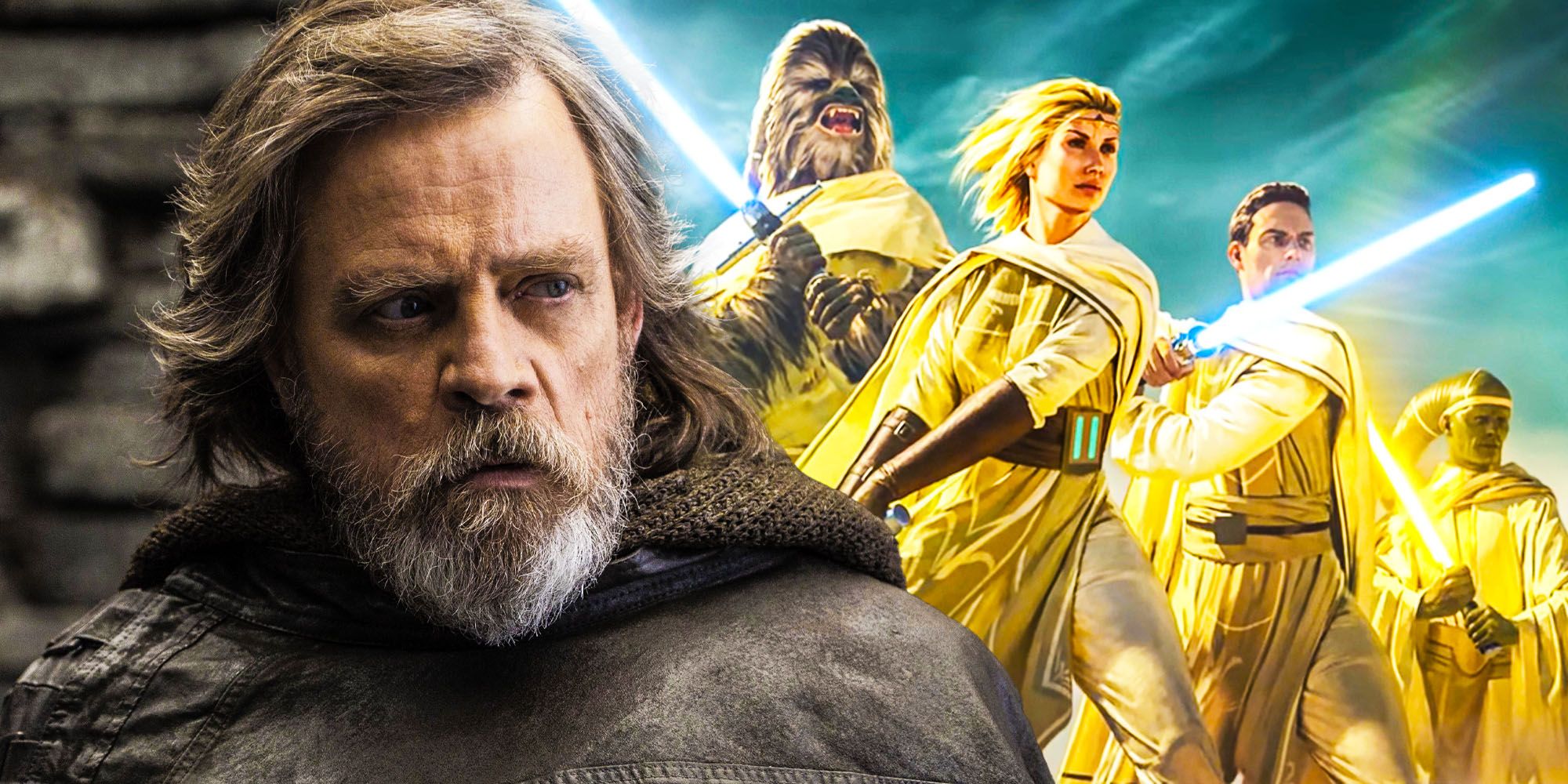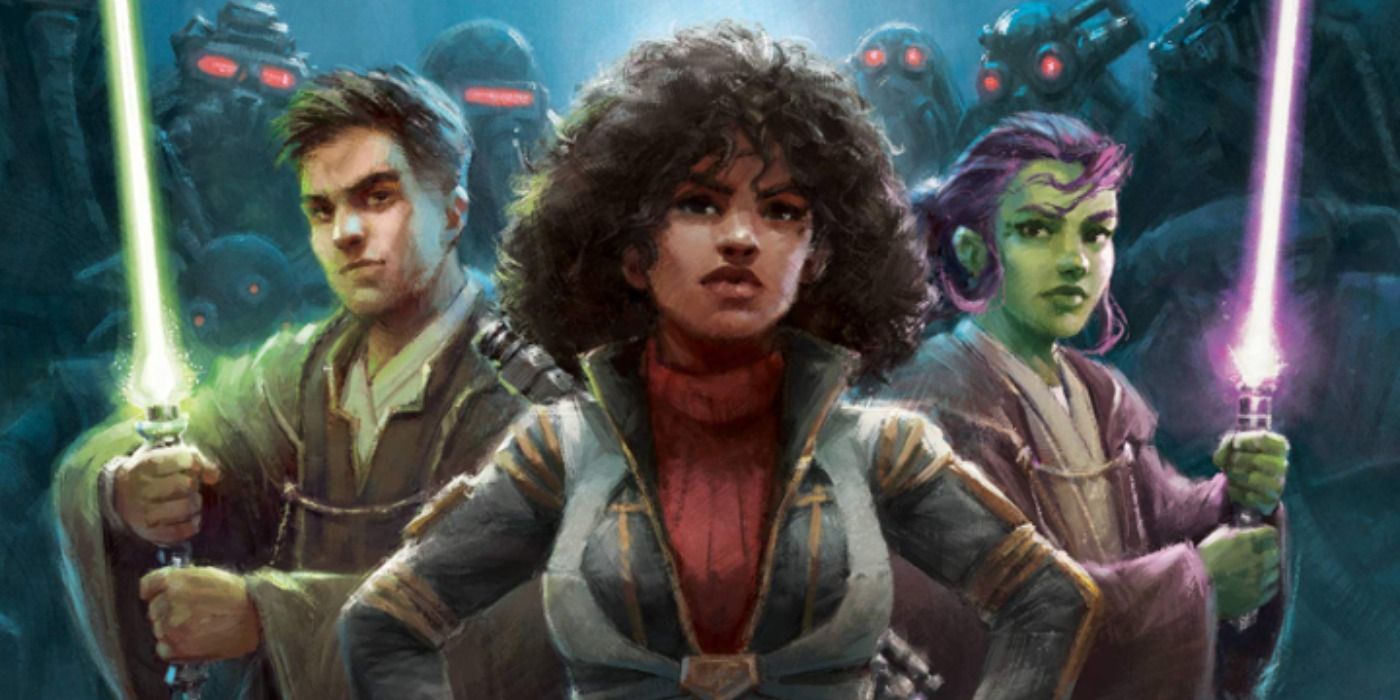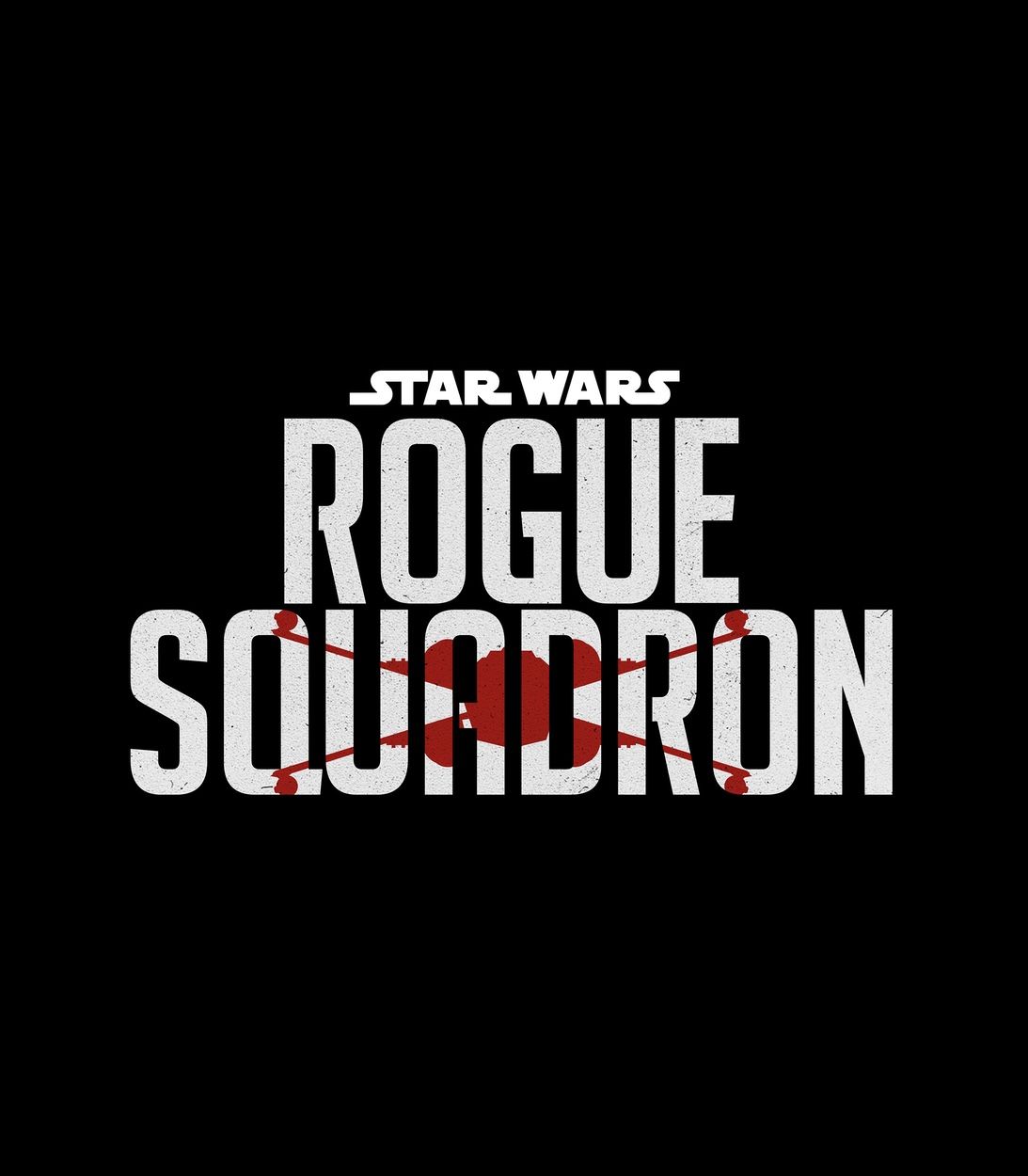Star Wars has finally revealed the greatest flaw of the Jedi Order. When Luke Skywalker first heard of the Jedi, he imagined them as champions of truth and justice. Little by little, though, Luke was disabused of his hero worship - especially when he learned his Jedi father Anakin Skywalker became Darth Vader. Viewers experienced a somewhat similar shock decades later when the prequel trilogy revealed just how flawed the Jedi Order really was.
Lucasfilm's Star Wars: The High Republic transmedia initiative has traveled even farther back, to a time 200 years before the events of Star Wars: Episode I - The Phantom Menace, when the Jedi Order was at its height. This was long before the shroud of the dark side robbed the Jedi of the wisdom and insight granted by the Force and, as such, they are performing feats beyond anything seen in the films. The story literally began with the Jedi combining their powers in order to prevent the destruction of an entire solar system, and each book in the ongoing series is introducing new abilities and aspects of the Force. But the latest novel, Justina Ireland's Out of the Shadows, also confirms that even in that time ordinary citizens could recognize the greatest flaw of the Jedi.
One scene in Out of the Shadows sees two characters discuss the Jedi, reflecting that they don't really care enough about people. "People make up life, that's true. But the Force doesn't always take into account people. It's so much bigger than the small problems of settlers or senators. And sometimes if you are looking at the forest you miss what is happening in the trees." The problem, according to these citizens of the galaxy, is that the Jedi serve the will of the Force - and this necessarily means they are a little distant from everyday life.
It's an insightful comment, and sadly there is a sense in which this problem only became worse as the centuries passed. During the High Republic Era, the Jedi at least maintained temples across the galaxy, meaning countless worlds had a Jedi presence - including some of the remote Outer Rim planets. But by the time of the prequel trilogy, the Jedi had retreated to their main temple at Coruscant, only leaving the galactic capital for missions. They had become even more distant from everyday citizens, and their focus on both the will of the Force and galactic politics sapped them of compassion. Ahsoka Tano learned this in Star Wars: The Clone Wars season 7 when her experiences in Coruscant's lower levels taught her just how irrelevant the Jedi had become to the everyday injustices found in the galaxy.
This would ultimately prove to be their downfall, because - as Star Wars: The Clone Wars creator Dave Filoni recently observed - every person's actions contribute to the balance of the Force. "The choice between dark and light is often subtle and not limited to the Jedi and Sith," he explained. "Everyone struggles with the balance between light and dark." By removing themselves from ordinary life, the Jedi allowed systemic injustices such as slavery to flourish, tipping the galaxy towards the dark side. Making matters worse, when Palpatine claimed the Jedi had betrayed the Republic, few beings had personal connections to the Force-users to know any better. The problem discussed in this Star Wars novel became the fatal flaw of the Jedi Order.



